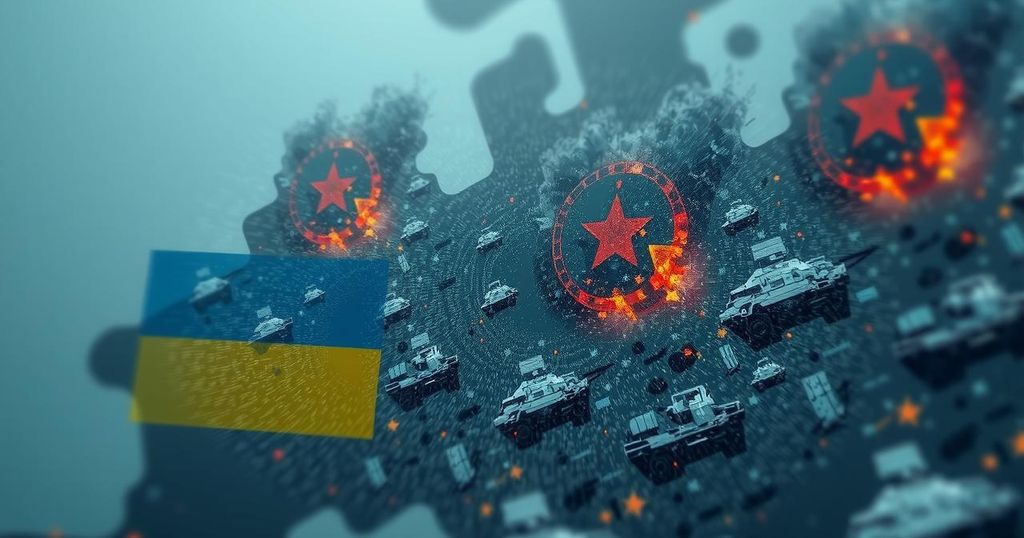World news
11TH CORPS, ASIA, CANCIAN, CENTER, CENTRE FOR STRATEGIC AND INTERNATIONAL STUDIES, CSIS, DEFENCE, ENERGY INFRASTRUCTURE, EUROPE, EUROPE/ASIA, KOREA, NORTH, KOREAN PEOPLE ' S ARMY, MARK CANCIAN, MICHAEL MADDEN, MILITARY, MILITARY STRATEGY, MOSCOW, NORTH AMERICA, NORTH KOREA, PYONGYANG, RUSSIA, STORM CORPS, THE PENTAGON, UKRAINE, UNITED STATES, US, WAR, WASHINGTON
David O'Sullivan
0 Comments
The Role and Implications of North Korean Troops in Ukraine’s Conflict
North Korean troops are reportedly supporting Russia in Ukraine, raising concerns about their effectiveness and operational roles amid a conflict that has seen significant casualties. Initial estimates of troop numbers have varied, but elite units may be involved, receiving additional training in Russia. This partnership between North Korea and Russia is seen as mutually beneficial, with financial incentives for Pyongyang and military support for Moscow amid ongoing tension between the Koreas.
Reports indicate that North Korean troops are now involved in Russia’s military operations in Ukraine, despite initial doubts regarding their combat effectiveness due to lacking battlefield experience. The estimated deployment figures have been contentious, with some suggesting North Korea could send as many as 100,000 troops, contrasting with initial Pentagon estimates of 11,000. Intelligence from both Ukrainian and South Korean sources suggests that the troops may consist of elite units trained for specific combat roles rather than being mere conscripts. The training these soldiers are receiving in Russia could enhance their operational effectiveness, particularly as they are likely being prepared for unique conditions in Ukraine. The specter of a long-term conflict has led to heightened roles for these soldiers, who are expected to bolster Russian forces as Moscow faces mounting casualties. Tactical assessments are difficult due to language barriers and operational differences, but engineering support might be a primary role for these North Korean troops given their potential lack of direct combat interoperability. In terms of rationale, the partnership is mutually beneficial; Russia seeks to replenish its manpower, while North Korea is in pursuit of financial support and military technology transfer. Credible estimates suggest each soldier may bring an income of around $2,000 monthly to Pyongyang, with further implications for strategic military support. The geopolitical implications are profound, particularly concerning Seoul, which is closely monitoring these developments amidst escalating tensions on the Korean Peninsula. The potential enhancement of North Korea’s military capabilities through battlefield experience in Ukraine raises alarms in South Korea. Moreover, the evolving relationship between Moscow and Pyongyang signals a disturbing shift in strategic alignments that could have long-lasting regional effects.
North Korea has a substantial military presence, with approximately 1.28 million active soldiers, yet their lack of recent combat experience raises questions about their effectiveness in the Ukraine conflict. The involvement of North Korean troops in Ukraine reflects a strategic partnership between Pyongyang and Moscow, wherein North Korea provides manpower in exchange for financial gain and access to military technology. The broader regional implications are significant, particularly concerning South Korea’s security posture in response to a potentially more capable adversary.
In summary, the deployment of North Korean troops in Ukraine indicates a strategic collaboration between North Korea and Russia in an effort to address significant military challenges. While the capabilities of these troops remain uncertain due to their lack of combat experience, their potential training and role could enhance Russian operations. The implications for regional security in Northeast Asia are consequential, as South Korea contemplates its own military strategy amidst these unfolding dynamics.
Original Source: www.bbc.com




Post Comment